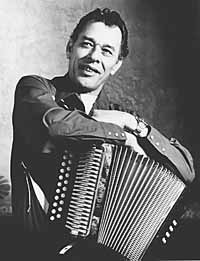Tragedias de la Frontera
By Lee Nichols, Fri., May 28, 1999
Hernández was not a drug dealer. He was a goat herder. Tending the herd near his home not far from the Rio Grande, Hernández was armed with a .22 rifle to protect the goats from poaching animals. He didn't know he was surrounded by heavily camouflaged Marines, stationed along the Texas border to keep out los traficantes, drug runners coming up from Mexico.
At some point, Hernández saw movement in the bushes. Assuming it was perhaps a coyote -- and having no reason to believe there would be anyone else in this isolated stretch of the West Texas desert -- the youth unknowingly pointed his rifle at one of the Marines. Trying to prevent a fellow soldier being shot, Corporal Clemente Manuel Banuelos shot and killed Hernández.
The incident was an outrage to both citizens of the border and those groups opposed to the government's drug policy. Aside from the ever-present and obvious hypocrisy -- Hernández's death coming only a year after the U.S.'s see-no-evil policy on Nicaraguan Contra drug dealers had been exposed -- even more disturbing was the already-existing historical precedent. It's nothing new for a Mexican-American to be gunned down in the border regions by forces of authority, although past offenders were often white sheriffs instead of Chicano soldiers.
 Such deaths are recorded not only in history books, but in the Mexican-American culture, as well. In earlier times, lacking alternative outlets, Chicanos expressed their discontent in corridos, ballads of the Mexican tradition, whose subset tragedias tell the story of particularly tragic events. Since proclaiming their anger at los gringos often resulted in retribution, Spanish lyrics provided the necessary cover needed for such expression to be possible. For the same reason, it's usually not known who wrote these ballads; they were created in obscurity and passed down orally through generations.
Such deaths are recorded not only in history books, but in the Mexican-American culture, as well. In earlier times, lacking alternative outlets, Chicanos expressed their discontent in corridos, ballads of the Mexican tradition, whose subset tragedias tell the story of particularly tragic events. Since proclaiming their anger at los gringos often resulted in retribution, Spanish lyrics provided the necessary cover needed for such expression to be possible. For the same reason, it's usually not known who wrote these ballads; they were created in obscurity and passed down orally through generations.
Fortunately, we will always know who wrote "El Corrido de Esequiel Hernández (La Tragedia de Redford, Texas)." Its author is Santiago Jiménez Jr., one of the heirs to the royal family of Tejano music, and it has been very publicly presented for all to hear on an album of the same name on Arhoolie Records. In fact, the song could almost be said to have two authors, since the original inspiration came from Arhoolie owner Chris Strachwitz.
"I had heard about this in the news, but I didn't really pay much attention to it at first," says Jiménez. "But Chris Strachwitz called and asked me to make a corrido about it. I asked him what it was about, and he told me about the tragedy in Redford. I said I needed more information to give me ideas, a report on how it happened, so he sent information to me about the tragedy, and I started composing a song little by little. It's not easy to do, because when you make a ballad you have to make sure of what happened. You can't just say any words, you have to be truthful about the story."
Strachwitz was not available for comment, but to anyone familiar with his work, his motivations are obvious. His frustration over civil rights violations along the border shows in his album liner notes -- which are, as always, excellent and informative -- and it's readily apparent that Strachwitz saw a chance to combine this passion with another -- his fascination with American ethnic music, in particular corridos. This combination previously manifested itself in Arhoolie's Mexican-American Border Music series on a 2-CD collection titled Corridos & Tragedias de la Frontera: First Recordings of Historic Mexican-American Ballads (1928-37), an amazing collection of old, obscure recordings that might have been lost to history if not for the fanatical label owner. The opportunity to revive this venerated song style around a modern tragedia was no doubt compelling.
So Strachwitz turned to "Chief," as Jiménez is known among friends, one of conjunto music's most revered preservationists.
"He called me up, and it took about a week," says the pride of San Antonio. "Normally, I can do a song in about 20-40 minutes, but when you make a song, you want to make as many verses as you can, and I needed 10 or 12 verses. For a corrido, you need that many. It depends on the information that I see."
As a song style, the corrido is not necessarily endangered, but its historic place in border culture is. While fictional corridos have always been part of the folkloric tradition of the genre, they're especially predominant today. "El Corrido de Esequiel Hernández" returns the form to its real-life roots.
Jiménez's new album also contains another corrido, not written about the Esequiel Hernández incident, but one that fits in naturally enough. Originally recorded for the documentary film, A Sheepherder's Homecoming, "The Sheepherder's Song (the Story of Tomás Ballato)" has a similar genesis as the album's title track, Jiménez being commissioned to write the tune by the filmmakers.
"This guy from New York, Lou Werner, did a video about this guy Tomás Ballato, about his life, about his immigration across the border, and about how he came to work and send money back to his parents. He asked me to compose a corrido for it, and I said I need to know about it, so he let me see the video. I did 12 or 15 verses, and then he asked me for more verses, so it ended up being 28 or 30."
Although political topics aren't the usual territory for Jiménez, this isn't his first such corrido; a few years back, he feted the mayor of San Antonio with "El Corrido de Henry Cisneros."
Lest it appear that Jiménez is merely an ethnic instrument for the political expressions of some white liberal, the accordion master makes it plain that, although Hernández's death hit Strachwitz's radar screen first, he shares the Arhoolie owner's views on U.S. drug policies.
"I really agree with him," says Jiménez. "[Hernández] was an innocent guy managing his own business, not knowing what was going on. It was a big mistake sending troops to get the drug dealers.
"Nothing is going to be solved by this. They will still be dealing drugs through the United States and Mexico. The government won't be able to stop it. They may catch the kings of the Mafia, but one goes and another comes in. It's like when my father [conjunto pioneer Santiago Jiménez] died and I kept the tradition going. It's the same thing. They catch one, and there is a substitute. The government will never stop it, and it's getting worse.
"They should be spending the money on poor people, on a better education for people that don't have money. There are better ways to spend the money than on law enforcement for drug dealing. If I'm not mistaken, they are going to spend millions to keep immigrants from coming to the U.S., but millions of people are crossing every year. They can't stop that, either. They should give the money to people for education."
The furor over Esequiel Hernández's death ultimately resulted in the Marines being withdrawn from the border, although that's likely small consolation for the Hernandez family. Asked if he had met the family or if they had heard the song, Jiménez says no.
"I've never met them. They probably might have heard the song already. When I recorded it, I thought I might have a presentation in Redford. I might do it if Chris wants to take me out there and if the family wants to meet me.
"It's hard when you lose a child like that."








